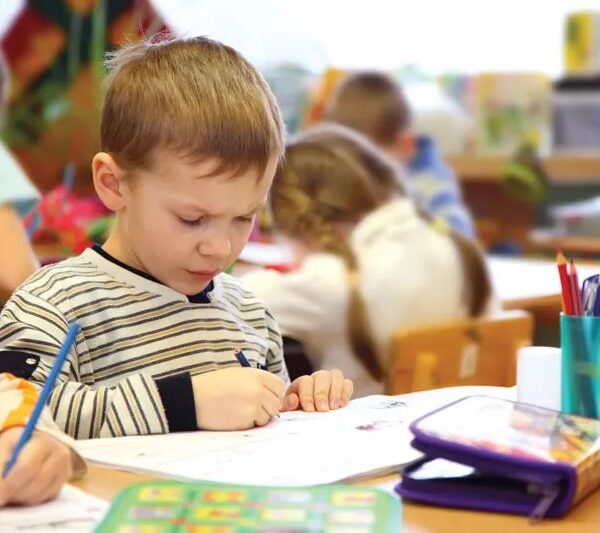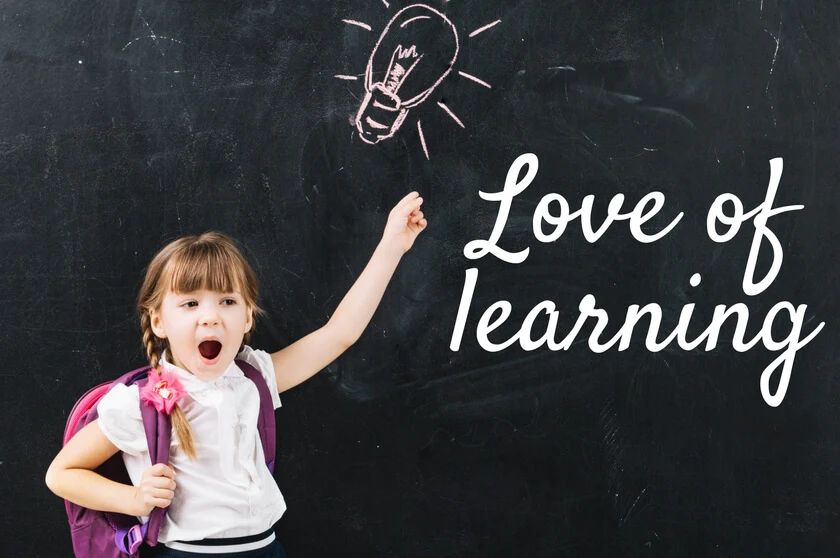kindergarten
Kindergarten is a program generally for 5-year-olds, but sometimes includes 4-to-6-year-olds, that offers developmentally appropriate learning opportunities to build the child’s social and academic skills and to prepare them for the transition into first grade, and for school in general.



What is the importance of kindergarten for children?
Kindergarten is often thought of as focusing only on childcare and play; Due to the young age of those enrolled, but this is not true, as the kindergarten stage is important and necessary for them, and it makes a difference in the advanced stages of study, and the importance of the kindergarten stage: preparing children for school


1
Preparing for school
The kindergarten stage represents a preparation for the school, as it is the first experience for children on the school bench, and it also prepares the children for the school system . This will lead the children to adapt to the school atmosphere, so they feel comfortable, focused and ready to learn better. It also provides children with the basics of learning in school classes such as numbers and letters. The student also takes an idea of the study schedule and the basic materials in which they receive education. In addition to developing students' interests towards different sciences, and identifying their strengths, it is indicated that it paves the way for a wonderful educational place full of interesting, fun and exciting educational activities, thus developing students' love of learning.

2
Develop children's social skills
Children acquire social skills from the kindergarten learning environment; Which contributes to the formation of friendships, and the acquisition of good morals, such as: kindness and attention. It also enables children to express feelings, talk to friends, and achieve active participation; Which contributes to the development of a successful, kind and interactive personality. Children also learn through interaction with peers and the teacher; Which leads to facilitating the learning process, as modeling, interaction and sharing help in socialization, and participation and cooperation are among the basic skills in social life, and help with social communication inside and outside the school, in addition to it strengthening relationships with parents.

3
Discover the abilities of children
Kindergarten provides an opportunity to discover children's abilities and develop their minds; It was found that children under 3 years of age, who are enrolled in that stage, have a greater linguistic reserve compared to children who are not enrolled in it. Also, 90% of the brain is fully developed during the age stage from birth to the age of 5 years, and therefore it is necessary for children to join that school stage.

4
Teaching children the basics of science
Children learn the basics of various sciences through the kindergarten stage, as they constitute the basic building block in the education process. Children learn the basics of language, mathematics and other sciences that form the basis of the curricula in the first three grades of the school. Teaching the basics of science also contributes to raising the level of academic achievement for students. Later.


5
Develop a sense of self-reliance in children
Kindergarten helps develop a sense of self-reliance in children by providing opportunities that enhance decision-making skills, and increases their self-esteem when they feel independent by providing children with multiple opportunities to discover their inner feelings and identify relationships with others.

6
Increase confidence in children
Kindergarten stage contributes to increasing self-confidence in children; As a result of engaging in educational situations that contribute to the acquisition of life skills, and provide positive interaction with colleagues, in addition to providing the opportunity to form relationships with them, it is worth noting that the kindergarten stage provides an opportunity to raise educated and confident children, within a safe and equipped educational environment. with experiences.


7
Instilling the joy of learning in children
The student engages in a set of purposeful educational activities that present information in a way that stimulates students' motivation towards the learning process, as it provides an element of fun and suspense; Which leads to instilling the joy of learning in the hearts of children despite all the challenges they face during the learning process.


8
Improving focus in children
The kindergarten stage improves the ability to focus in children, as the part of the brain responsible for organizing, planning and attention develops very quickly at that age stage. the behavior. It is worth noting that the attention period of children is short at that age, while their internal motives contribute to discovering everything new, thus giving kindergartens the opportunity to discover while developing their ability to focus, as children participate in educational tasks within groups, and complete individual projects while the role of children is limited The teacher provides guidance and counseling.
